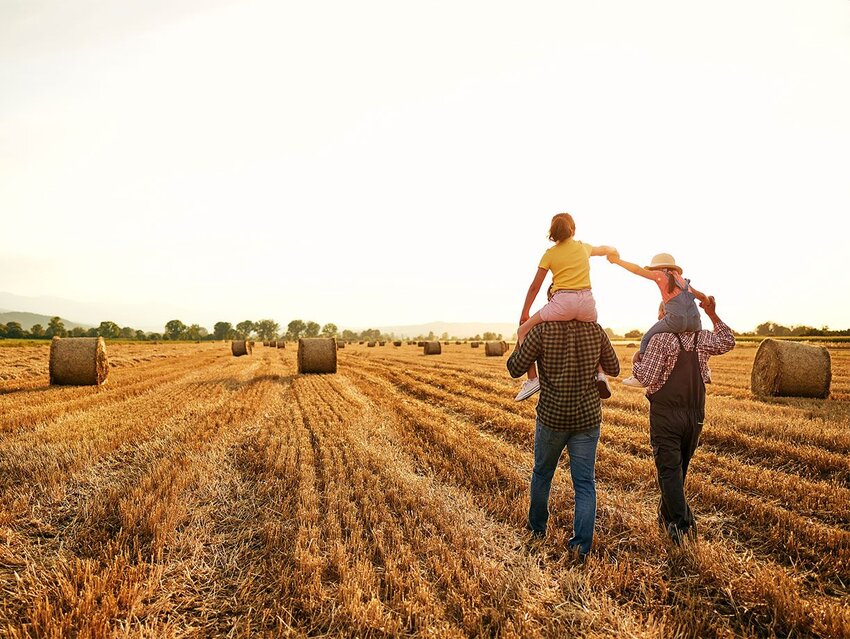For thousands of years, farmers have been working land and breeding animals, and in that time, they’ve developed their very own lingo. Many of the words you’ll hear on a farm — including “fertilizer” and “horticulture” — have made their way out of the barnyard and into common usage. Here are eight popular agricultural words and their meanings.
Agriculture
The science of farming is called “agriculture.” It involves cultivating the soil, harvesting crops, and raising animals — basically all the typical duties performed on the farm. The term, in use since the mid 15th century, comes from a combination of two Latin words — ager (meaning “field”) and cultura (meaning “cultivation”).
Crop
Any plant grown and sold for profit can be called a “crop.” The word comes from the Middle English croppe, which refers to “the head on top of a plant.” By the 1200s, the verb meant something like cutting off the top of the plant. Later, in the 14th century, the noun expanded to refer to the whole harvest of plants.
Farm
In the Middle Ages, “farm” meant a fixed payment for rented land. It originated from the French word ferme, which means “rent or lease.” By the 1520s, it referred to a piece of cultivated land. According to the United States Department of Agriculture, an American farm is any place that generates at least $1,000 in sales of agricultural products in a year.
Harvest
When a farmer “harvests,” they gather crops, pulling them from the land in order to sell, store, or otherwise use them. The term originally came from the Old English word hærfest where it was a way to describe the period between August and November. After the 1500s, the verb referred to the process of gathering crops, and the nouns “autumn” and “fall” replaced the name for the season. However, the time of year when crops are collected is still commonly referred to as “harvest season.”
Husbandry
When one cultivates crops and breeds animals, it’s called “husbandry.” The word comes from the word “husband,” which, originally, didn’t have anything to do with marriage. The Old English husbonda means “male head of household,” and he didn’t have to be married at all. Now, a person (in the 14th century, it was almost always a man) who manages their land, crops, and animals is engaging in husbandry. It’s similar to “agriculture,” and there is quite a bit of overlap, but “agriculture” has a more scientific connotation. “Husbandry” also has a secondary definition of “management and conservation of resources.”
Livestock
Animals raised and used for profit, especially on farms, are called livestock. First used in the 1600s, the term is a compound word of “live” (meaning “having life”) and “stock” (meaning “supply for future use”). Its opposite is “deadstock,” which refers to farm tools and equipment (the non-living tools used on a farm).
Organic
This term comes from the Latin word organa, which means "a musical instrument." By the 14th century, “organ” referred to a part of the human body and, later, living beings in general. However, it wasn’t until 1942 that “organic” came to mean "free from pesticides and fertilizers." According to the Environmental Protection Agency, organic farming involves growing food without synthetic fertilizers or pesticides.
Sow
As the idiom says — as a man sows, so he shall reap. This farming verb (pronounced “soh”) means planting seed by scattering it on the ground. The word comes from the Old English sawan, which means “to scatter seed upon the ground.” It’s also related to the Proto-Indo-European root sē- which is the source for the words “season” and “seed.” (The noun form, pronounced with an “ow” at the end, is the word for an adult female pig.)
Featured image credit: FluxFactory/ iStock

